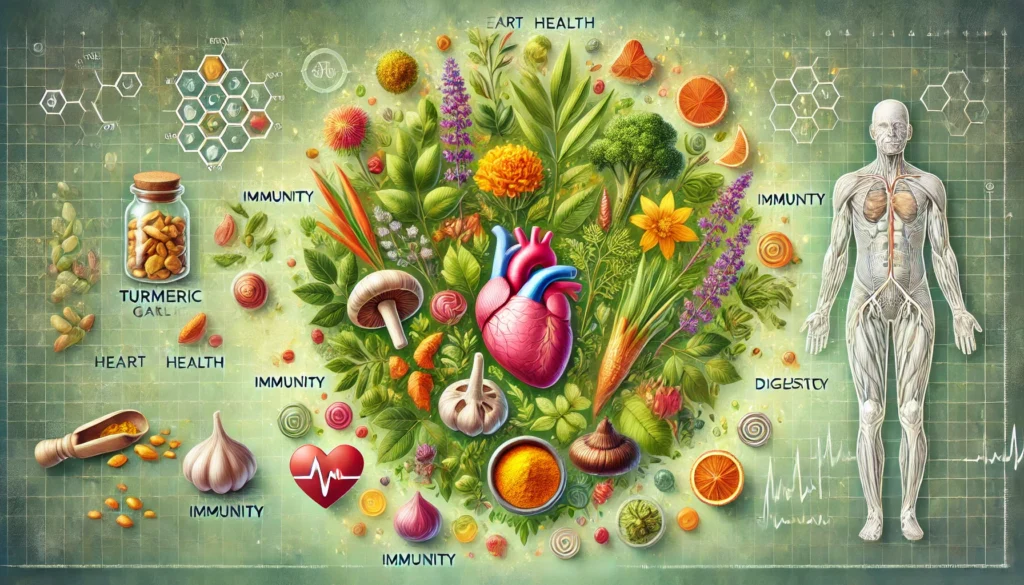Table of Contents
Grape Seed Extract: A Potent Antioxidant for Health and Wellness
Grape seed extract has emerged as a powerhouse supplement, boasting a wide range of health benefits. While it may seem like a modern discovery, the use of grapes and their seeds dates back thousands of years, with ancient civilizations recognizing their medicinal value. Packed with potent antioxidants and bioactive compounds, grape seed extract offers a natural way to improve heart health, skin vitality, and even cognitive function. In this blog, we’ll explore the history of grape seed extract, its nutritional profile, health benefits, various ways to incorporate it into your diet, and potential precautions to consider.
This site contains affiliate links, and I may receive a commission on purchases made through them. Please see our Affiliate Disclosure for more details.

Historical Significance
Ancient Use
The history of grape cultivation stretches back over 6,000 years, originating in regions around the Mediterranean, particularly in ancient Egypt and Mesopotamia. Grapes were prized not only for their flavor but also for their medicinal properties. While the focus was typically on the fruit and wine production, grape seeds weren’t discarded. Ancient healers in Egypt, Greece, and Rome recognized the health benefits of the whole grape, including its seeds, using them to treat inflammation, wounds, and skin conditions.
The Romans, for instance, used grape seeds to promote wound healing and ease digestive discomfort, while in Greek medicine, crushed grape seeds were mixed into salves for skin health. In Christian tradition, wine (made from grapes) and grapes themselves were symbolic, often associated with health and vitality.
Cultural Significance
Throughout Europe, grape seeds were integrated into folk medicine, primarily for treating skin irritations, inflammation, and digestive issues. Even though grape seeds were not as widely used as the fruit, their health properties were appreciated by those who knew how to harness them. This laid the groundwork for modern research into grape seed extract, which has become a popular dietary supplement in recent decades.
Modern Rediscovery
It wasn’t until the 20th century that scientists began extracting proanthocyanidins—powerful antioxidants—from grape seeds. These compounds have since been studied extensively for their ability to combat free radical damage, support cardiovascular health, and offer anti-aging benefits. As research continues to uncover the health-promoting properties of grape seed extract, its use has spread globally, from health-conscious individuals to skincare industries.

Botanical Profile
Source of Grape Seed Extract
Grape seed extract is derived from the seeds of grapes, particularly the Vitis vinifera species, which is commonly used in winemaking. This species is rich in antioxidants and polyphenols, making it an ideal source for grape seed supplements. The seeds are typically small, hard, and packed with beneficial compounds, which are concentrated and purified during the extraction process.
Grape Seed Components
Grape seeds contain a wealth of bioactive compounds, including:
- Proanthocyanidins: A group of powerful antioxidants that are believed to be responsible for many of the health benefits associated with grape seed extract.
- Flavonoids: Another group of antioxidants that help protect the body from oxidative stress and reduce inflammation.
- Tannins and Linoleic Acid: Contributing to cardiovascular health, skin care, and overall wellness.
Extraction Process
The extraction process typically involves crushing the seeds and using a solvent to concentrate the active ingredients, particularly the polyphenols and proanthocyanidins. This process ensures that the final product is highly potent and can be used for both supplements and skincare applications.

Nutritional and Phytochemical Profile
Nutritional Content
Grape seeds are a rich source of vitamins and minerals, making them a nutritional powerhouse:
- Vitamins: Grape seeds are particularly high in vitamin E, a fat-soluble antioxidant that protects the body from oxidative stress and supports skin health. They also contain vitamin C, which boosts the immune system and supports collagen production.
- Minerals: Grape seeds are a good source of calcium, magnesium, and potassium, all of which are important for bone health, muscle function, and cardiovascular wellness.
Phytochemicals
The true power of grape seed extract lies in its polyphenols, a type of antioxidant that protects the body from cellular damage caused by free radicals. The most important polyphenols in grape seed extract are proanthocyanidins, which are known for their anti-inflammatory, anti-aging, and heart-protective properties.
Other Active Compounds
- Resveratrol: Though more commonly found in grape skin, resveratrol is also present in grape seeds and is known for its heart-healthy and anti-aging effects.
- Tannins: These compounds help to support cardiovascular health by reducing blood pressure and improving blood flow.
- Linoleic Acid: An essential fatty acid that is particularly beneficial for skin health, helping to maintain moisture and reduce inflammation.

Health Benefits of Grape Seed Extract
The health benefits of grape seed extract are vast, thanks to its rich content of antioxidants and other bioactive compounds. Here’s a closer look at some of the most significant health advantages.
Powerful Antioxidant Properties
Proanthocyanidins in grape seed extract are some of the most potent antioxidants found in nature. They help neutralize free radicals, which can cause oxidative stress and damage cells. By reducing oxidative stress, grape seed extract helps protect the body against chronic diseases, premature aging, and environmental damage.
Cardiovascular Health
One of the most well-researched benefits of grape seed extract is its positive impact on cardiovascular health. Studies show that regular consumption of grape seed extract can help lower blood pressure, improve circulation, and reduce cholesterol levels. By increasing nitric oxide production in the blood, grape seed extract helps to relax blood vessels and improve blood flow, reducing the risk of heart disease, strokes, and atherosclerosis.
A 2011 study published in the journal Metabolism found that patients who took grape seed extract for four weeks saw significant reductions in systolic blood pressure.
Anti-inflammatory Effects
Grape seed extract’s anti-inflammatory properties make it useful for people with inflammatory conditions like arthritis. By inhibiting the release of pro-inflammatory compounds, grape seed extract helps reduce pain, swelling, and stiffness in the joints. Additionally, its anti-inflammatory effects can benefit skin conditions such as eczema and psoriasis.
Skin Health and Anti-Aging
As a natural source of antioxidants and vitamin E, grape seed extract is highly effective in promoting skin health. It helps to protect the skin from UV damage, reduce the appearance of wrinkles, and improve skin elasticity by promoting collagen production. Grape seed oil, often used in skincare products, is also moisturizing and can help heal dry or damaged skin.
Blood Sugar Regulation
Emerging research suggests that grape seed extract may help regulate blood sugar levels, making it beneficial for people with type 2 diabetes. By improving insulin sensitivity, grape seed extract can help the body process glucose more effectively and reduce blood sugar spikes.
Cancer Prevention
Studies have shown that the antioxidants in grape seed extract, particularly proanthocyanidins, may help prevent the growth of cancer cells and reduce tumor development. Research has indicated that grape seed extract may be effective in preventing certain types of cancer, including breast, colon, and prostate cancers.
Cognitive Function and Brain Health
Grape seed extract’s neuroprotective properties may help improve cognitive function and reduce the risk of neurodegenerative diseases like Alzheimer’s and dementia. The antioxidants in grape seed extract protect brain cells from oxidative stress and inflammation, which are major contributors to cognitive decline.
Immune System Support
The polyphenols in grape seed extract also help support the immune system by boosting the body’s natural defenses against infections. Regular consumption of grape seed extract can enhance immune response, helping to prevent colds, flu, and other illnesses.
Eye Health
Grape seed extract is beneficial for eye health, particularly in preventing age-related conditions like macular degeneration and cataracts. The antioxidants in grape seed extract protect the eyes from free radical damage and support healthy blood flow to the retina.
Weight Management
Some studies suggest that grape seed extract can help boost metabolism and reduce fat absorption, making it a helpful supplement for those trying to lose weight. It works by inhibiting the enzymes that break down fat, reducing the number of calories absorbed from fat in the diet.

Methods of Consumption
There are various ways to incorporate grape seed extract into your health routine, each offering its own benefits.
Grape Seed Extract Capsules
Capsules are the most common form of grape seed extract supplements. They are standardized to contain a specific amount of proanthocyanidins, ensuring consistent and potent antioxidant benefits. Capsules are convenient and easy to include in your daily supplement regimen.
Grape Seed Extract Powder
Grape seed extract powder can be added to smoothies, juices, or even sprinkled on food. This form allows for flexibility in dosing and is a popular option for those who prefer not to take capsules. Grape seed extract powder is often used in protein shakes or health drinks.
Grape Seed Oil
Grape seed oil is another popular form of grape seed extract. It can be used both internally and externally. Internally, it supports heart health, while externally, it is a highly moisturizing oil for the skin and hair. Grape seed oil is rich in linoleic acid, which helps to maintain healthy skin and hair while providing antioxidant benefits.
Grape Seed Extract Tinctures
Tinctures offer a concentrated, liquid form of grape seed extract. They are easy to use and allow for fast absorption into the body.
Tinctures can be taken directly under the tongue or added to water or juice for a more palatable experience.
Grape Seed Extract in Skin Care
Grape seed extract is a key ingredient in many anti-aging and skin-healing products. It can be found in serums, creams, and lotions, where it helps to reduce the appearance of wrinkles, promote skin elasticity, and protect against environmental damage. It’s particularly popular in products designed for dry or mature skin.

Cautionary Advice
While grape seed extract is generally safe for most people, there are a few precautions to be aware of.
Potential Side Effects
Some individuals may experience mild side effects, such as gastrointestinal discomfort, headache, or dizziness, particularly when taking high doses of grape seed extract. It’s always best to start with a lower dosage and gradually increase it as your body adjusts.
Medication Interactions
Grape seed extract may interact with certain medications, particularly blood-thinning drugs like warfarin and aspirin. It can also affect cholesterol-lowering medications and blood pressure medications. If you are taking any prescription medications, consult your doctor before adding grape seed extract to your regimen.
Allergies
Though rare, some people may be allergic to grape seed extract. Symptoms may include itching, rash, or difficulty breathing. If you experience any allergic reactions, discontinue use and seek medical advice.
Safe Dosage
The recommended dosage for grape seed extract typically ranges from 100 to 300 mg per day, depending on the concentration of proanthocyanidins. It’s always best to follow the dosage instructions on the product label or consult with a healthcare professional for personalized advice.
Pregnancy and Nursing
While grape seed extract is generally considered safe, pregnant and nursing women should consult their healthcare provider before using any herbal supplements, including grape seed extract, to ensure it is safe for both mother and child.

Conclusion
Grape seed extract is a potent and versatile supplement that offers a wide range of health benefits, from boosting cardiovascular health and protecting the skin to improving cognitive function and supporting the immune system. With its rich antioxidant content and anti-inflammatory properties, grape seed extract is a natural way to enhance overall wellness. Whether taken as a supplement, applied topically, or used in skincare products, grape seed extract is a powerful addition to any health regimen.
If you’re looking for a natural way to protect your body from oxidative stress, improve heart health, or maintain youthful skin, grape seed extract may be just what you need. Explore the various forms of grape seed extract to find the one that fits best into your lifestyle and experience the many benefits this small yet mighty seed has to offer.
